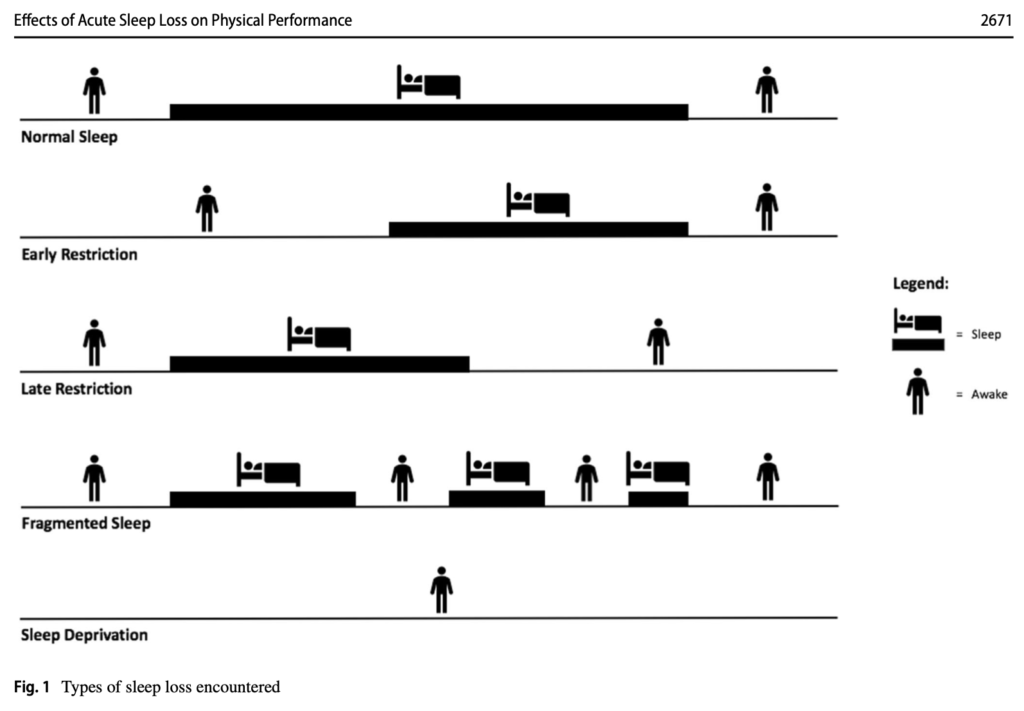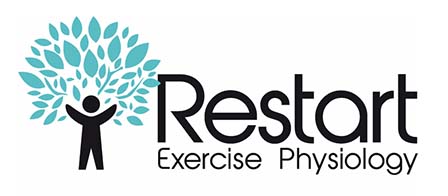Are you one of the estimated 45% of the Western adult population that fails to obtain the recommended 7-9 hours of sleep each night?
The damaging effects of chronic sleep loss are well-documented. Sleep is essential in maintaining physical and mental health, and is known to:
- promote short and long-term memory,
- regulate emotions,
- enhance metabolic functions,
- improve energy balance,
- moderate the immune system, and
- play a pivotal role in the body’s ability to withstand stress.
To read more about the impacts of chronic sleep loss, and learn our 4 Proven Ways to Improve Your Sleep today, click here.
This blog however is all about acute sleep loss (defined as achieving <6 hours of sleep in any 24 hour period). Perhaps you pulled an all-nighter for work or study purposes; had a delay getting home, a later dinner and hence bed-time was pushed back later than usual; or had to set an alarm for an early flight.
How can I expect this to affect my energy levels throughout the next day?
Should I exercise, or take a rest day?
And if I do exercise, am I better to do one form of exercise over another?
In a 2022 study termed ‘Effects of Acute Sleep Loss on Physical Performance: A Systematic and Meta-Analytical Review‘, Craven and colleagues set about discovering the impacts of acute sleep loss (again, just one night of affected sleep resulting in <6 hours of sleep in any 24hr period) on our movement and physical capacity.
Types of sleep loss encountered
Firstly, the study classified the different types of sleep loss, summarised as the following:

Restricted sleep was split into two categories – a delay in sleep onset (early restriction) and earlier than normal waking (late restriction). Fragmented sleep involves one or more nocturnal awakenings, and sleep deprivation is a general term to describe a period of extended wakefulness (usually beyond 24 hours).
They then wanted to discover the effects of each ‘sleep-loss protocol’ on the following seven physical performance categories:
- anaerobic power (exercise of a duration of <6s performed at maximum effort),
- speed/power endurance (maximum continuous exercise for a duration between 6 – 90s),
- high-intensity interval exercise (HIIE) (near maximal efforts of ~ 45s with brief recovery periods),
- strength (maximum force development during a single-effort),
- endurance (continuous exercise >120s),
- strength-endurance (resistance-based task >2 repetitions or >5s sustained muscle contraction),
- skill (tasks that requires high cognitive component for execution).
They also had a look at whether the above sleep-loss protocols had a more damaging effect on training in the AM or the PM.
Influence of acute sleep loss on exercise performance
Depending on your training goals, it may be best to look at the above seven physical performance categories and review the evidence and impact of each type of sleep loss. The study’s findings are outlined below…
Anaerobic power
If you are a power athlete such as a powerlifter, know that performance is negatively impacted by:
- sleep deprivation and sleep restriction (interestingly however, not by early restriction but by late restriction ONLY),
- additionally, performance in the AM tends to be unaffected.
Speed/power endurance
If you love to include maximum continuous exercise for durations between 6 and 90 seconds in your workouts, it’s important to know that acute sleep loss will affect performance if you’ve had one night of:
- sleep restriction (late restriction ONLY) – the advice is to get to bed at early or at your normal hour to compensate for an early alarm 👌🏻
Much like with anaerobic power, training for speed/power endurance in the AM is unaffected.
High-intensity interval exercise (HIIE)
HIIE has become a popular mode of exercise in recent years due to it’s effectiveness at both maximising time in the gym to achieve both aerobic/cardiovascular fitness gains and as a weight loss protocol. If HIIE is your thing, performance will be affected by:
- sleep restriction (late restriction ONLY) – the advice is to get to bed at early or at your normal hour to compensate for an early alarm 👌🏻
Much like with anaerobic power and speed/power endurance, performing HIIE in the AM is unaffected by acute sleep loss.
Strength
As adults we are recommended to engage in 2-3 bouts of resistance exercise per week – this is vital to maintain and improve lean muscle mass and bone mineral density, amongst many additional benefits. Knowing the importance of consistent strength training, it pays to avoid:
- sleep deprivation, as this has a reported significant negative influence on performance.
Engaging in strength training in the PM is likely to be negatively influenced by acute sleep loss, so try and lift those weights earlier in the day. Interestingly, the effects of sleep deprivation negatively impacted lower-body strength, whereas tasks requiring upper-body strength were unaffected.
Endurance
If you are an endurance athlete such as a triathlete or long-distance runner, analysis shows that endurance-based protocols were negatively impacted by:
- each sleep loss protocol, irrespective of the time of day of exercise (AM or PM).
Strength-endurance
If you enjoy hypertrophy training for example (bouts of resistance-based exercise that last for 30-60 seconds per set), then know that performance will be impacted by:
- sleep restriction (there is no current analysis for either early or late restriction for this performance category).
Skill
Tasks that require a skill component appear to be particularly sensitive to the effects of sleep loss. Affected sleep has been shown to negatively impact reaction time, alertness, attention, memory, decision-making and learning. Therefore, if a skills-based workout is on your radar, you may be best suited to reschedule your workout if you’ve had one night of:
- any of the sleep loss protocols, as acute sleep loss negatively impacted performance irrespective of whether tasks were performed in the AM or PM.
But why the negative consequences?
The negative impacts of acute sleep loss on physical performance are likely to have numerous causes. Negative consequences may result from:
- a decrease in muscular strength and/or endurance,
- change in mood (reduced motivation),
- an increase in perceived effort (exercise feels harder than usual),
- changes to cognitive processing ability eg decision-making and executive function, and/or
- a reduction in fine motor skills.
In summary
The outcomes of this systematic review are conclusive in determining that acute sleep loss negatively impacts next-day exercise performance. It’s findings can be categorised into 4 main findings:
- The magnitude and significance of the impact is dependent on the sleep-loss protocol preceding exercise, with sleep deprivation and late-restriction (earlier than normal waking) protocols demonstrating consistent negative impacts;
- The time awake prior to performing exercise was found to be an influential factor. The study found that on average, exercise performance declined by ~ 0.4% per hour following sleep loss. For example, if an individual rises early eg 3am and performs a task 12 hours later, then a ~ 5% decrease in performance may be anticipated;
- Exercise tasks performed in the PM were consistently negatively affected by sleep loss, while tasks performed in the AM were largely unaffected;
- Given the above results, when sleep loss is unavoidable and individuals have some level of control over timing, when it comes to maintaining physical performance early restriction would appear preferable to late restriction.
It’s important to note however that the study did not quantify sleep quality, only sleep quantity. Furthermore, the studies examined had a significant male bias, with only a small number of female participants included (~ 11%).
Conclusion
In my opinion, this study is yet another indicator on the importance of a good night’s sleep. A good night’s sleep needs to be the norm, not the exception. If you are exercising towards a specific goal, be it a performance goal or sport-specific goal, a weight loss goal or upcoming fitness challenge, just one night of impacted sleep could negatively impact your next-day performance.
However, knowing the above information can help you adjust your training program to dodge these effects. For example, choose an upper-body strength workout vs a lower-body strength workout. Or schedule your high-intensity interval session for the morning rather than the afternoon.
Of course, if you are experiencing sporadic bouts of acute sleep loss it’s important to address this before it becomes chronic sleep loss. The negative impacts of chronic sleep loss on your health will have far reaching effects, likely beyond simply physical performance.
Happy training (and sleeping 💤)
Luke


0 Comments